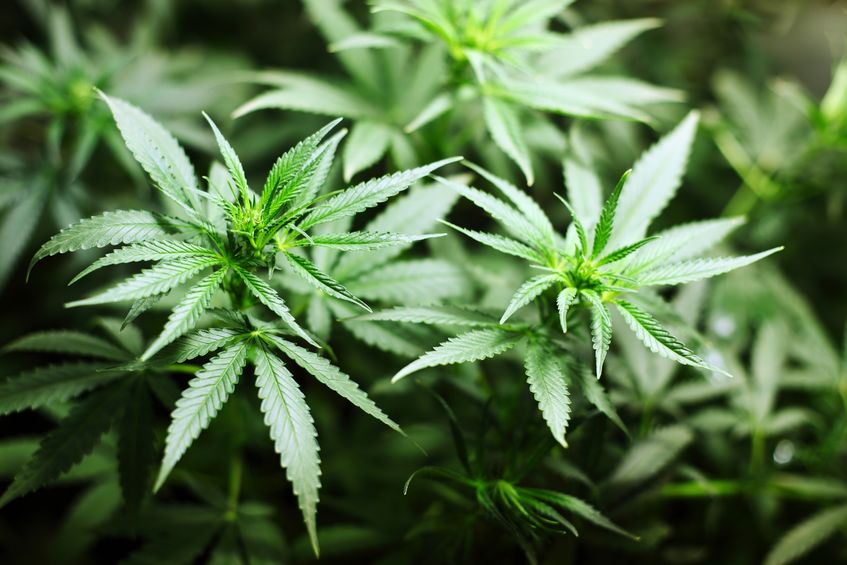
By: Thomas Cocchi, Executive Editor
Steven Auerbach (L’13) came to the Law School on January 8th to speak with students about The Pennsylvania Medical Cannabis Act (Act). Asserting his belief that the session was the first of its kind that he was aware of, Mr. Auerbach said that the conversation would focus on the effects the law will have “when” not “if” it is passed.
Mr. Auerbach is involved in advocacy for the rights of cannabis users as the Executive Director of the Cannabis Growers Association of Pennsylvania. His constituency hopes to be able to leave their current primary locations in basements in favor of more plant-friendly greenhouses if the Act should pass. Therefore, Mr. Auerbach has been keenly interested in and even called to give advice on the drafting of the Act, and has some of the most in-depth knowledge about its inner workings and its potential legal effects.
Before going into specifics about the Act itself, Mr. Auerbach discussed the support that the Act has received in getting to its present level. In many ways, he claimed, the current Pennsylvania political climate was ideal for an act such at this to pass. First, the approval rating among Pennsylvanians for the legalization of medical cannabis is currently hovering around 85%. Additionally, that support has not been in vain, as 100% of the Act’s backers up for re-election this year won back their seats in the PA legislature. Finally, the incoming Governor has expressed support for the medical use of cannabis, and has even said that he would remain open to other uses as well.
The Act itself refers only to cannabis, and not to marijuana, due to the cultural baggage associated with the word “marijuana.” The Act allows for persons suffering from certain, enumerated, conditions to apply for and receive a medical usage card. Mr. Auerbach explained that, while only 10 different conditions would be cause for patients to obtain usage cards under the Act, a “catch all” provision was written into the Act by which other conditions could be added to the list of treatable conditions after approval by a panel of medical professionals established by the state. While conditions such as PTSD and epilepsy, which are commonly known to be clear candidates for treatment with cannabis, are on the list, notably absent are both HIV and AIDS. Patients who have HIV/AIDS, and do not also have one of the other 10 conditions, would have to apply to the board to have their condition added to the list. Mr. Auerbach praised the flexibility of the bill as “a good middle ground,” and noted that the Act allowed for future broadening in a variety of ways to address changes in the industry.
Regarding the impact that the Act will have, Mr. Auerbach quoted numbers from other states, as well as forecasting data for Pennsylvania from groups like his. He noted that, in other states where medical cannabis use is legalized, states see a significant (30%-40%) decline in overdoses due to Oxycotin. Additionally, Mr. Auerbach asserted that PA medical cannabis dispensaries on the high end of the market could expect to see nearly $1 million in revenue per month, with the associated tax revenue going to the state.
However, Mr. Auerbach did not look at the bill through rose colored glasses, and he was fully able to recognize some of the issues raised by the legalization of medical cannabis use. For instance, he recognized that those who engage in the transportation and/or sale of cannabis, even if not violating state law, would be acting directly against the federal Controlled Substances Act. Along with this violation comes the possibility of asset seizure, the loss of certain tax deductions, and disqualification for bankruptcy. Mr. Auerbach did recognize that the US Department of Justice recently published a memo stating that they are “not in the business of arresting cancer patients” and directing federal prosecutors to focus on any connections to illegal guns or to cartels. However, he expressed his concern that the memo specifically enumerated states that had already legalized medical use, and did not leave the door open for application to other states.
Mr. Auerbach’s presentation ended with a period of questions and answers, after which he re-iterated that while there was certainly a lot of questions to answer in the implementation of legalized medical cannabis in Pennsylvania, it represented a tremendous growth in public opinion that a conversation predicated on the premise of its certainty was even occurring.